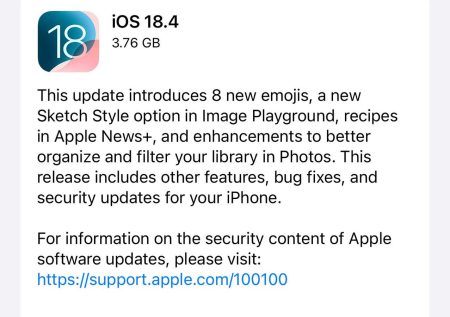In case you missed it, Mozilla Thunderbird has been enjoying a serious revival during the last few years. The venerable desktop email software has been modernized with a fresh coat of paint and new technologies under the hood, launched a long-awaited Android mobile version, and is in the early stages of developing an iPhone app. But apparently, the team is just getting warmed up. An ambitious suite of open-source web services is in development under the “Thunderbird Pro” banner, and one of them is especially interesting: Thundermail.
A Thunderbird Email Service Just Makes Sense
While the traditional Thunderbird desktop client is a great piece of software with an extensive amount of features tailored to power users, the vast majority of the world has moved on to simpler web-based email services that are accessible from any browser or smartphone.
At its core, Thundermail will be a browser-based email service that functions similarly to Gmail. Users can send and receive email on the web using new Thundermail accounts they sign up for. The service will also allow using your own custom domain (e.g. your.name@yourdomain.com).
Based on conversations I’ve had with the developers, there’s at least one important quality that will distinguish Mozilla’s email service from competitors like Gmail: privacy. Thundermail isn’t going to use your messages to train AI, it’s not going to invade your inbox with ads, and it’s not going to harvest and sell your data.
Thundermail is currently being tested internally, but the team stealthily launched a beta signup site at Thundermail.com.
Thunderbird Pro: An Alternative Productivity Ecosystem
But Thundermail is only one piece of the emerging “Thunderbird Pro” offering.
Ryan Sipes, Managing Director of Product at MZLA Technologies Corporation (a wholly-owned subsidiary of the Mozilla Foundation which works on all things Thunderbird) is transparent about why these services are being built.
“Thunderbird loses users each day to rich ecosystems that are both clients and services, such as Gmail and Office365,” Sipes says. “These ecosystems have both hard vendor lock-ins (through interoperability issues with 3rd-party clients) and soft lock-ins (through convenience and integration between their clients and services).”
The endgame, according to Sipes, is to build an alternative ecosystem that is 100% open source and available to everyone. Here’s a quick look at the three additional services that will eventually be packaged into Thunderbird Pro:
Thunderbird Send is a spiritual successor to Firefox Send, rebuilt to allow direct and encrypted sharing of large files.
Thunderbird Appointment (which is currently accepting beta signups) is a streamlined scheduling tool aiming to remove the guesswork and admin headaches from planning an event or a meeting.
And finally there’s Thunderbird Assist, which is, at least for now, being cautiously labeled as “an experiment” that will allow users to take advantage of AI features within their email. However, the goal is to be lightweight enough that the language models can be run locally on a user’s PC in the interest of privacy. This service is being developed in partnership with Flower AI, which leverages Nvidia’s confidential compute to provide private remote processing in the event a user’s PC isn’t powerful enough.
Sipes emphasizes that any remote processing features attached to Thunderbird Assist will always be optional, in the interest of ensuring complete user privacy.
What Will Thunderbird Pro Cost?
It sounds like Thundermail – and by extension the Thunderbird Pro suite – doesn’t yet have a detailed monetization model. What we know for sure is that initially, Thunderbird Pro will be a paid service. Sipes explains that once there’s a strong enough user base, the team will open up free tiers for each service, albeit with some limitations (perhaps fewer email addresses for Thundermail, smaller file sizes for Thunderbird Send, etc).
What’s crystal clear is that Thunderbird’s ever-increasing donation revenue (currently its sole source of income) is allowing for some explosive growth that’s long overdue. To add some context to this, Thunderbird received $2.8 million in donation revenue during 2021. Two years later, in 2023, it received $8.6 million in donations. I’m told that total financial contributions for 2024 were even higher, though the final amount hasn’t been officially released.
“It is my conviction that all of this should have been a part of the Thunderbird universe a decade ago,” Sipes says. “The absence of web services from us means that our users must make compromises that are often uncomfortable ones. This is how we correct that.”
Public discussion for all things Thunderbird Pro and its associated services are available via the Thunderbird mailing lists.
Read the full article here









